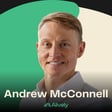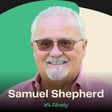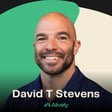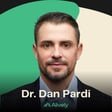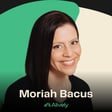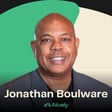
Heal Your Lymphatic System with Dr. John Douillard - E62
Most people struggle with stubborn weight around the belly, brain fog, sluggish energy, and mysterious aches, never realizing that a congested lymphatic system might be at the root.
When your lymph isn't flowing, toxins build up, immunity suffers, and even blood pressure can spiral out of control. Left unchecked, these problems chip away at your longevity and your daily vitality.
Healing your lymphatic system takes more than surface-level fixes; it requires getting your breath, diet, and daily rhythms working for you. This episode explores proven ways to get your lymph moving, all guided by someone who knows how to translate tradition into real results.
Dr. John Douillard is a leader in integrating ancient Ayurvedic wisdom with modern scientific research, focusing on practical approaches to health, longevity, and self-awareness. A chiropractor by training, he spent over a year in India studying Ayurveda before returning to the U.S. to co-direct Deepak Chopra’s center, where he trained medical doctors in holistic health practices. Dr. Douillard has authored seven books and published extensively on topics such as breathwork, circadian medicine, and digestive health. He is also the host of the 'Ayurveda Meets Modern Science Podcast'.
“That's what I love about time tested wisdom is, it doesn't usually change at all. It hasn't changed in a couple of thousand years, probably not going to change in six months.” - Dr. John Douillard
In this episode you will learn:
- How the diaphragm plays a central role in both lymphatic health and overall vitality, and why dysfunctional breathing is linked to common issues like belly fat and poor digestion.
- Why stress and sensory overload in modern life disrupt subtle self-awareness and biological rhythms, leading to widespread metabolic issues, and the ancient and modern strategies to counteract this.
- The science behind circadian rhythms and the powerful effects of syncing your daily routine, sleep, and meals with natural cycles for improved energy, weight management, and longevity.
- Practical entry points for reclaiming health, including simple breathwork exercises, nature exposure, mindful eating, and movement after meals.
- The foundational principles of Ayurvedic medicine, including the importance of seasonal eating, understanding your body type, and using tradition informed by modern research.
- How compromised lymphatic function from poor diet and weak breathing impacts immunity, energy, and cognitive health, and evidence-based steps you can take to restore your system.
Resources
- Connect with Dr. Douillard on Instagram: https://www.instagram.com/lifespa
- Learn more about Lifespa: https://lifespa.com/
- Listen to his podcast, ‘Ayurveda Meets Modern Science Podcast’: https://lifespa.com/podcast/
- Download Lifespa’s e-books: https://lifespa.com/ebooks/
This podcast was produced by the team at Zapods Podcast Agency:
Find the products, practices, and routines discussed on the Alively website:
